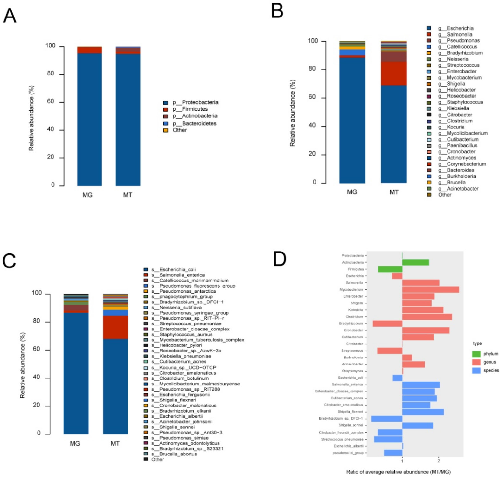Chinese Scientists Reveal the Origin and Composition of Gut Microbiome in Newborn Lambs
Ruminant Nutrition & Feed Science Innovation Research Team of Institute of Feed Research, Chinese Academy of Agricultural Sciences, revealed the prenatal gut of lamb harbours metabolically active microbiome. This result is a breakthrough in the study of ruminant animals. Related paper entitled "Multiomics analysis reveals the presence of a microbiome in the gut of fetal lambs" was published in Gut on February 15, 2021.
Former senior team leader professor Diao Qiyu highlighted the significance of the findings," The gastrointestinal microbiota plays a critical role in feed degradation, health and growth performance of ruminant. Researchers have been trying to figure out the origin, composition, and colonisation time of gastrointestinal microbiota. It has long been assumed that the uterus of mammals is sterile and that establishment of the fetal microbiota commences at birth. The findings of this study would provide new insight into the process of microbial colonisation in the fetal gut."
In this study, the research team used lambs delivered by aseptic hysterectomy as experiment objects and multiomics based analyses, and detected a low-diversity and low-biomass metabolically active microbiome in the prenatal fetal gut, which was mainly composed of bacteria belonging to the phyla Proteobacteria, Actinobacteria and Firmicutes. They also detected multiple microbial metabolites including short chain fatty acids, deoxynojirimycin, mitomycin and tobramycin, indicating the presence of metabolically active microbiota.
This study is the first to provide direct evidence that the prenatal gut harbours a microbiome and that microbial colonisation of the fetal gut commences in utero. These findings advance our understanding of the fetal gut microbiome, which is helpful in promoting animal growth, development and health by regulating early host-microbe interaction.
This research was supported by the National Key Research and Development Programme of China (2017YFD0500500), National Natural Science Foundation of China (31702136), earmarked fund for the China Agriculture Research System (CARS-38) and Fundamental Research Funds for Central Non-profit Scientific Institution (1610382021008, Y2019CG08). More information can be found through the link: https://gut.bmj.com/content/early/2021/02/14/gutjnl-2020-320951

Figure. Microbiome composition of metagenome (MG) and metatranscriptome (MT) in fetal gut
By Bi Yanliang (biyanliang@caas.cn)
-
 Apr 18, 2024Opening Ceremony of the Training Workshop on Wheat Head Scab Resistance Breeding and Pest Control in Africa Held in CAAS
Apr 18, 2024Opening Ceremony of the Training Workshop on Wheat Head Scab Resistance Breeding and Pest Control in Africa Held in CAAS -
 Apr 03, 2024IPPCAAS Co-organized the Training Workshop on Management and Application of Biopesticides in Nepal
Apr 03, 2024IPPCAAS Co-organized the Training Workshop on Management and Application of Biopesticides in Nepal -
 Mar 28, 2024Delegation from the School of Agriculture and Food Science of University College Dublin, Ireland Visit to IAS, CAAS
Mar 28, 2024Delegation from the School of Agriculture and Food Science of University College Dublin, Ireland Visit to IAS, CAAS -
 Mar 25, 2024Director of World Food Prize Foundation visited GSCAAS
Mar 25, 2024Director of World Food Prize Foundation visited GSCAAS -
 Mar 20, 2024Institute of Crop Sciences (ICS) and Syngenta Group Global Seeds Advance Collaborative Research in the Seed Industry
Mar 20, 2024Institute of Crop Sciences (ICS) and Syngenta Group Global Seeds Advance Collaborative Research in the Seed Industry
